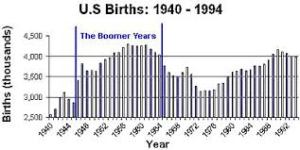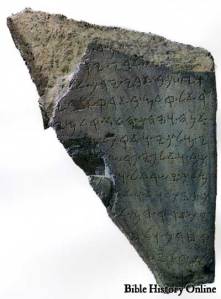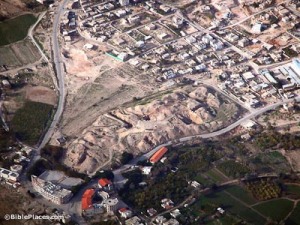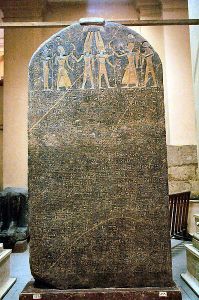With my foot pressed hard on the accelerator and my car pointed straight toward a 1000 foot drop, I again take a quick inventory of the reasons I should not attempt to kill myself:
“My wife? She’ll divorce me anyway when she finds out all the horrible things I’ve done.”
“My career? What career? Selling hamburgers!” Nothing.
“My son?” I hesitate. “He’ll miss me, but in the long run, he’ll do better in life without me.”
As a guard rail looms in the windshield, I hear a soft voice ask, “Will you go to heaven?”
Many have felt the impact of Robin Williams’ premature death by his own hand. I believe this is a proper reaction, since Mr. Williams was deservedly well-loved by the culture. He was a fine actor, an intelligent man, a hilarious comedian, a good husband, a faithful father, child of God and by all accounts a really nice guy. Add all this to the fact that many in our society identify with depression and you end up with a cultural firestorm regarding this topic.
So to add my half-cent to the discussion, I admitted via social media this past week that I am the survivor of a suicide attempt I made back in 1990. I figured the story might help my friends collectively process their deeply-felt loss of Robin Williams. But in writing the story I have discovered that there are just some details I am not willing to shove out into the light of social media. Instead I would like to reflect on what I have learned over time…
IT DOESN’T HURT WHEN IT BEGINS…
I am not sure depression directly leads one to suicide. Depression is a state of mind involving a cluster of symptoms that can be brought on by many factors, both internal and external. Despair is the complete absence/complete loss of hope, which can also be brought on by many factors, only one of which is depression. In other words, while despair is certainly related to depression, it is something completely different. We can only analyze after the fact from details revealed by his family, but despite battling the disorder for years, it is entirely possible that Robin Williams was not depressed when he took his life. Perhaps he was in a state of despair over something else in his life, like his recent diagnosis of Parkinson’s.
While I suffered from depression for years, I cannot say unequivocally that I was depressed when sped up to drive my car over a cliff. I may have told you at the time that I was, but on reflection I believe I had entered a state of despair over actions I had taken over a period of years.
Let me be clear. Depression absolutely can lead to despair, and if it does I believe it is a deadly combination. There has been discussion recently over the selfishness of suicide. As one who has tried it, I can say that MY attempt had a selfish component. But once you are in a state of despair your mindset is that everyone else will be better off without you. You cannot see clearly nor process information correctly. Everyone else may be able to see what you have to live for, but when you are in a state of despair, that is just not something you can see.
And from my experience I can add that having someone rehearse all I have to live for is only a read-through of the reasons I should leave. It’s akin to having my arm chopped off and while the blood is draining from my body having someone tell me to just “get over it.”
If you are suffering from depression or despair, if you feel like you have lost all hope, stop reading this stupid blog post and call someone that can REALLY help you. Here are just two resources:
National Suicide Prevention Lifeline: 800-273-8255
New Hope Counseling Center: 714-NEW-HOPE
If you know someone that is suffering from depression or despair, please assist them with getting professional help. If you are not trained to counsel people when they are in this state, please refrain from say something stupid like, “We love you! Think of all you have to live for!” These things may be objectively true, but you need to first cut through my despair to even be able to argue why I shouldn’t die.” Even if you are not trained, don’t attempt it if the person is close to you. Your training will not overcome your bias.
THE PAIN GROWS STRONGER, WATCH IT BURN
In my case I did not seek counsel. In a state of despair I worked through my decision while driving up the San Bernardino Mountains after work one day to meet up with my family for the weekend. Nothing I could think of changed the course of action I was contemplating. While accelerating to over 75 mph while approaching a cliff, I audibly heard the question, “Will you go to heaven?” As a Christian I do not believe that suicide cancels my salvation, and the thought of seeing heaven was on the plus, not minus side of finishing the act. But I was surprised to find that I could not answer the question. Since I couldn’t answer the question, I decided to live to find out, but it was almost too late. I was already in the turnout and driving full speed on gravel. I slammed on the brakes and turned the wheel to avoid the cliff, which almost barreled me sideways over the cliff anyway.
Choosing life did not make things better. In fact, things actually got worse for over a year. Later on I could not tell you how old I was without calculating how old I was in 1990 and adding how long it had been since that time. I later found out this is called disassociation – a coping mechanism that our brains employ to deal with traumatic amounts of stress. This one of several reasons I have kept this under wraps.
So that is part of my story. If depression, despair, or suicide have irrevocably marked your life you feel that speaking with me might help you process that, feel free to contact me privately and I will do what I can to help.









